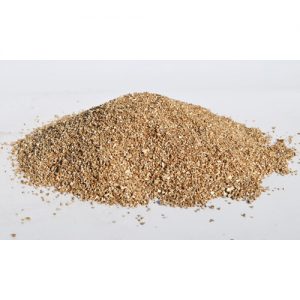Description
Kenworks Ventures Company Limited are the leading suppliers of Hydrated Lime in the Kenyan market and across the borders.
Get in touch with us to place order through +254 722 706 416 or email us via info@kenworksventures.co.ke
CC: kenworksventures@gmail.com
Hydrated lime, scientifically known as calcium hydroxide (Ca(OH)2), is a chemical compound with a long history of applications in various industries. This versatile substance is derived from quicklime (calcium oxide) by adding water, a process known as slaking. Hydrated lime plays a pivotal role in several industries, owing to its unique chemical properties, making it indispensable in agriculture, construction, wastewater treatment, and more.
The Chemistry of Hydrated Lime
Hydrated lime is produced by introducing water to quicklime through a controlled chemical reaction. When water is added to quicklime, it undergoes a process of hydration, resulting in the formation of calcium hydroxide. The reaction is exothermic, generating heat as the quicklime absorbs water. The chemical formula for this process can be represented as:
CaO + H2O → Ca(OH)2
This transformation from quicklime to hydrated lime is accompanied by a significant increase in volume and the formation of a fine, white powder. Hydrated lime is often marketed as a dry powder, but it can also be found in slurry form.
Applications of Hydrated Lime
- Agriculture: Hydrated lime is widely used in agriculture to modify soil properties and improve crop growth. It serves several purposes, including pH adjustment in acidic soils, providing essential calcium nutrients to plants, and mitigating the harmful effects of soil-borne diseases. Additionally, hydrated lime is used in the production of fertilizers.
- Construction: In the construction industry, hydrated lime is a key ingredient in mortar and plaster. It enhances workability, durability, and adhesion of these materials. The addition of hydrated lime to cement mixtures also contributes to reduced shrinkage and improved resistance to cracking.
- Environmental Control: Hydrated lime plays a critical role in mitigating environmental issues. It is used in the treatment of acidic industrial waste, often in combination with flue gas desulfurization (FGD) systems to reduce sulfur dioxide emissions from power plants. In wastewater treatment, it helps in pH control, heavy metal removal, and odor reduction.
- Water Treatment: Drinking water and wastewater treatment facilities use hydrated lime to soften water, adjust pH levels, and remove impurities. It is effective in coagulation, flocculation, and disinfection processes, ensuring safe and clean water supplies.
- Road Stabilization: In road construction and maintenance, hydrated lime is used to stabilize soil and control dust. It improves the load-bearing capacity of the soil, reducing the need for frequent maintenance and enhancing the longevity of road surfaces.
- Chemical Manufacturing: Hydrated lime is a key component in various chemical processes, such as the production of calcium stearate (used in the plastics and rubber industries) and other specialty chemicals.
- Food Industry: In the food industry, hydrated lime is employed for several purposes, including pickling and preserving food items, such as fruits and vegetables. It is used to adjust the pH and improve the texture and quality of these products.
Safety Considerations
While hydrated lime has numerous beneficial applications, it is essential to handle it with care due to its alkaline nature. Exposure to hydrated lime can cause skin and eye irritation, and inhalation of its dust can lead to respiratory issues. Therefore, protective gear, including gloves, goggles, and masks, should be worn when working with this chemical.
Conclusion
Hydrated lime, derived from quicklime through a simple process of hydration, is a versatile and indispensable chemical compound. Its ability to adjust pH levels, improve soil quality, enhance construction materials, and address environmental concerns makes it a valuable asset in various industries. As our understanding of the environment and the need for sustainable practices continues to evolve, the diverse applications of hydrated lime will likely expand, highlighting its enduring significance in a wide range of sectors.







